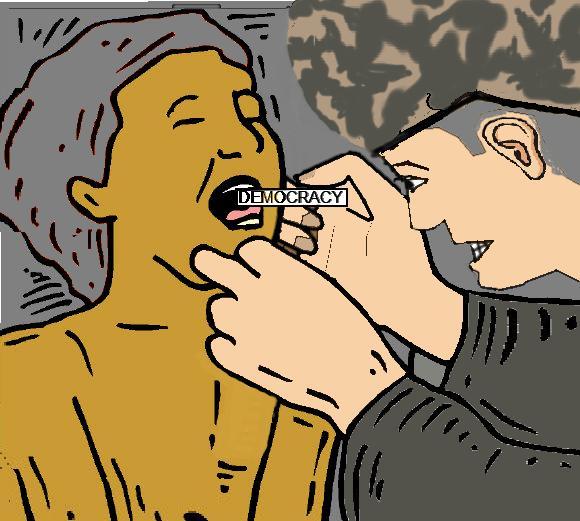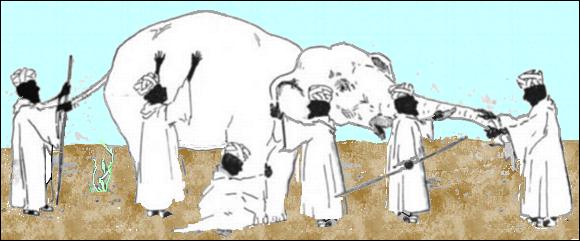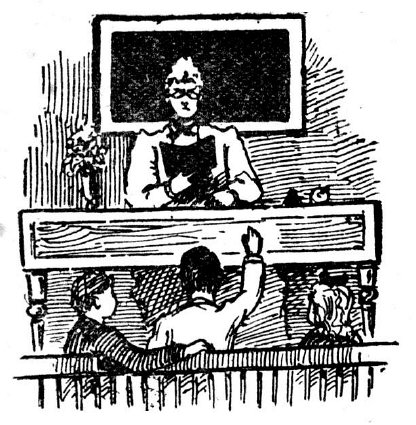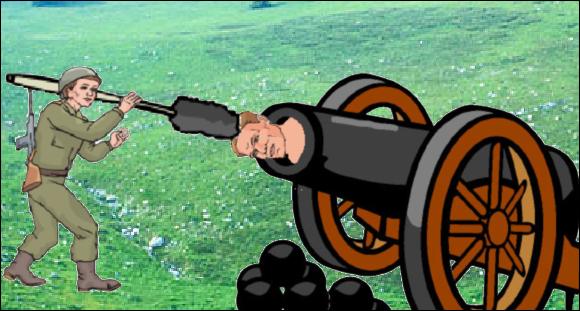To link to this article from your blog or webpage, copy and paste the url below into your blog or homepage.
A Dream Deferred
a book by Philip Slater
(our site's book review)
“Democracy has penetrated only a limited segment of our collective consciousness. Most of our public and private organizations are still authoritarian in structure—our corporations, professions, and educational institutions have yet to feel more than the palest breath of democratic influence. The authoritarian era, after all, embraces most of recorded history—most of which we think of as civilization—and it is still deeply embedded in our psyches.” So says Philip Slater in this book about the difficult struggle to nurture democracy in the modern world. Ironically, despite the success of democracy elsewhere, the fall of the Soviet Union and their attempt at democratic reform, the crumbling of the Berlin Wall and increased democracy in many other places in the world, Slater finds that democracy is now under siege in a most unlikely place: the United States of America, where the propensity for authoritarian thinking and the love of military solutions continue to grow.

Military solutions
One of America’s preeminent visionaries, Slater shows, in this book, that democratic forms of organization, not authoritarian ones, yield the most flexible, intelligent responses to a complex world. So why are we retreating from our democratic heritage? Because it’s so hard, after 5000 years of authoritarianism, to give it up: It’s so ingrained in our thinking that it’s like breathing.
Slater is one of the few visionaries in the world that actually predicted the downfall of communism and the rise of democracy that we now see before us on the world scene. If you notice that places like Russia, Syria and Iraq are now fighting democratic policies and/or ideas, note that it isn't really the people but the authoritarian leaders and religious radicals that resist democracy. And now the U.S. is resisting democracy as well, slowly turning into an Oligarchy and Corporatocracy. Greed is the biggest reason for the Oligarchy undermining democracy in the U.S. and Russia, although Russia is more accurately a kleptocratic oligarchy. On the other hand, the 2010 Arab Spring revolts were due to unhappiness with dictatorships or absolute monarchies, human rights violations, political corruption, economic decline, unemployment, and extreme poverty and few people were ripe for democracy, but just a lessening of the oppression. Mideast countries are too thoroughly authoritarian to accomodate democracy as we know it. It's why Iraq's attempt at democracy is such a mess, which was made infinitely worse by Obama's utterly idiotic foreign policy bungles which precipitated the whole ISIS disaster.

U.S. and Iraq wouldn't be trying to jam democracy down non-democratic throats if George Dubya Bush hadn't invaded Iraq under false pretenses in the first place
Of course, Iraq wouldn't be trying to jam democracy down non-democratic throats if George Dubya Bush hadn't invaded Iraq under false pretenses in the first place. See The Rise of Global Civil Society: Building Communities and Nations from the Bottom Up for why democracy simply will not fit in a place like Iraq. ISIS is a symptom of just how poorly such forced nation building works in Islamic fundamentalist countries, who rightly resent the hell out of infidels pushing them around. And yet Bush didn't care about such things—he wanted oil and to exploit mideastern countries and he didn't care whether they liked it or not: "After 9/11, President Bush declared regime change to be official U.S. policy. He took this country to war to create regime change in Iraq. How does the president know which governments to overthrow? According to Bush’s criteria, a government must:
- build or sell weapons of mass destruction
- violate U.N. resolutions
- threaten, invade, or dominate its neighbors
- exploit many of its own poorest citizens
- erode the civil liberties or human rights of its people
- fail to live up to democratic ideals

Neocon nutjobs tell us that dumping our Bill of Rights and our Constitution was a prerequisite for our safety, which no intelligent citizen could possibly buy

9/11 terrorist attack
The president [Dubya], of course, was thinking of countries like Iraq, Iran, North Korea, or Syria. But look at the list more carefully. Sound familiar? The criteria that call for regime change apply to the American government itself. Americans live under a regime that is threatening to dominate not just its neighbors but the world as a whole." (Source: Regime Change Begins at Home: Freeing America from Corporate Rule.) If, as George Dubya Bush says, these are the correct criteria for regime change, doesn't that mean the U.S. needs regime change now? And that is precisely the author's (Charles Derber) insightful point! See The Deep State: The Fall of the Constitution and the Rise of a Shadow Government and Confessions of an Economic Hit Man.
The oligarchs of the corporatocracy of the Shadow Government rule these days, thumbing their noses at democratic concerns in not just the U.S. but all other nations as well. Who says so? We do, as do dozens of other knowledgeable sources, such as:
- Shadow Government: Surveillance, Secret Wars, and a Global Security State in a Single-Superpower World
- When Corporations Rule the World
- The Rise of the American Corporate Security State
- The Secret History of the American Empire: Economic Hit Men, Jackals, and the Truth about Global Corruption
- Losing Our Way: An Intimate Portrait of a Troubled America
- The Crash of 2016: The Plot to Destroy America--and What We Can Do to Stop It
- The Deep State: The Fall of the Constitution and the Rise of a Shadow Government
- National Security and Double Government

The blind men and the elephant: Various authors see the shadow government from various perspectives, but the overall gist is creepily similar

The oligarchs of the corporatocracy of the Shadow Government rule these days, thumbing their noses at democratic concerns in not just the U.S. but all other nations as well
Slater is also one of the few visionaries in the world that long ago realized the severe defects in our modern American habit of using the historically aberrant child-raising technique of steep-gradient nurturance as opposed to the historically normal technique of flat-gradient nurturance used through tens of thousands of years since modern man was invented. The intrinsically win-lose nature of steep-gradient nurturing compared to the intrinsically win-win nature of flat-gradient nurturing has great effects on our psychological health, our character, our penchant for violence, etc. Hundreds of modern social commentators from all fields—including many of our wisest experts—have been trying to get Americans to flatten our nurturing profile by adding others to the mix for decades, and, unfortunately, most of the actual changes in nurturing have been in the area of using more childcare centers—which is not what these experts and commentators had in mind.

Childcare at a center
Slater says that our “anxious feeling of impending doom” at the turn of the millenium merely reflects the fact that we’re so used to an authoritarian outlook on everything that we cannot imagine life without it and we cannot imagine what will take its place, but we can see that at least from a global perspective it is in the process of being replaced. What will take its place is democracy, he says, and our present agonies are mere birth pangs. He says the reason that areas of life such as child-raising are still permeated by authoritarianism is that we’re all still dominated by underlying authoritarian assumptions and beliefs (e.g., Diana Baumrind’s unnecessary addition of a punitive parental control factor to her otherwise wonderfully helpful concept of authoritative parenting), and they’re hard to root out, but many of us are trying. Most Americans delude themselves that our democratic transition has already taken place, while, in actual fact, it has only just begun. As the Tofflers have said (and Slater has said it now as well): With the information explosion, the accelerating rate of change in our world, the increasing evolution of communications technology and usage all over the world, democracy simply has to finally become the predominant system—no other system will work well in such a world.
Slater says that it is our “female” traits—flexibility, creativity, sensitivity, understanding, emotional honesty, directness, warmth, realism and the ability to communicate, to negotiate, to integrate, to cooperate—that are precisely those most needed to successfully maintain a democratic society. But not just women but men as well must develop these for a democracy to work. Authoritarian societies are designed to promote status quo, while democratic ones are designed for change and growth—they evolve as needed. Equality of the sexes is inconceivable in an authoritarian society because the above traits would threaten the status quo, while no real democratic tradition can succeed for long in a macho society full of authoritarian values and practices. So you can see why democracy is such a struggling newborn in this country, and why its males have a lot of growing to do to engender democratic spirit in America. Riane Eisler has said the same thing and more besides (in Sacred Pleasure, for instance). So has Gloria Steinem in Revolution From Within, in which she realizes the answer is democratic parenting so democracy is easier for us to do because it’s part of our nurturing.
Slater says that it is authoritarianism itself, not any particular expression of it, that creates brutality toward others. This may be true, but he goes too far when he says that the giant global corporations are the principle enemy of democracy in the West. He’s probably right in his left-wing vision of the U.S. doing whatever it needs to preserve corporate freedom around the world, but not that much to preserve human, personal freedom. On the other hand, the U.S. has no power to make China or North Korea care about human rights, but does have power in the area of business and trade.

The U.S. has no power to make China or North Korea (whose leader is shown) care about human rights, but does have power in the area of business and trade
So what are we to do about human rights that will actually work? Support them in all the feasible ways we know of—which is what we pretend to do. (Think of all the rights our country's citizens have given up in the name of security, such as the right to privacy which the NSA has eliminated, with Facebook's and Google's help. And by being the world's largest arms dealer, we help many end up deprived of the right to life itself.)
So Slater's anti-business stance seems overblown (to us it makes more sense to bemoan the corporatocracy's running of our country through their flunkies: U.S. politicians). Has he forgotten that a large percent of Americans have some stock in those huge companies (even if indirectly through CDs, whose money ends
up invested in stocks and other things), which means that their profits are, at least potentially, an investment opportunity for our citizens to accumulate nest eggs and college money? There’s a win-win context here that seems very healthy and benevolent, and citizens do exercise their rights of boycott and protest when one of the corporations is too insensitive to rights or environmental issues and other concerns.
He goes through the obligatory liberal list that includes the poor getting poorer and the rich getting richer, implying that the European welfare states are healthier and happier, even though many economists feel they’re going to fall further and further behind as the years go by, eventually becoming irrelevant, because their entitlements cripple growth, investment, incentive, etc. Naisbitt expects Europe to end up as a bunch of History theme parks, although a reasonable rejoinder to his smartassery might be that the U.S. spends a lot more on wars they neither want nor need than Europe spends on welfare checks. The poor getting poorer and the rich getting richer is a legitimate point, however, because of the sneaky way this wealth transference occurs—see below.

If Europe does not reform its welfare-burdened economy, it is in danger of becoming a history theme park

The gap between rich and poor continues to widen
Slater says that the economic inequity in America is one of the greatest threats to democracy, but the liberal solution of economic redistribution through progressive taxation needs to always be combined with the conservative one of empowering economic opportunity for those in need. (A caricature of economic redistribution currently occurring is our massive food stamps program, in which the government has hired people to go around the country trying to sign up as many people to the food stamp program as possible, the end result being that many of these new enrollees are no longer looking for jobs like they had been! The "economic redistribution" then becomes, perversely, from those of us who work our tails off to those of us who merely goof off.)

"Work? Hell no—I've got food stamps!"
Criticizing lowering the capital gains tax is warranted. This lowered capital gains tax is costing the government $100 billion every year. On the other hand, Slater needs to be careful not to criticize those that are doing well by following the prescriptions of the American Dream: hard work, good education, wise investments, entrepreneurial spirit and perseverance. To criticize some of the best things about being an American because some people show more abilities and competence in actualizing the American Dream than others is counterproductive.
There are realities in the Third Wave global economy wherein some types of work in our world have more value than others. It is each American’s personal responsibility to adjust his/her approach to the American Dream according to his/her wants and needs and ambitions. It you work hard, you make money, but if you work smart and hard you make more. If you know a little, you make a little money, but if you take full advantage of all the educational opportunities you can—regardless of fools around you trying to pull you down and denigrate your efforts, you learn a lot and make more money.
See Bold New World: The Essential Road Map to the 21st Century about us importing technical and science and computing workers because a ton of jobs in the U.S. get filled no other way—Americans are too lazy to get the prerequisite education to qualify for them. Apparently, even though in high school and/or college "career days" the young get told which subject areas are smart to go into [computer science, technology, engineering or math], our American young tend to avoid these as too hard or uncool, and end up in business, financial, legal, crime prevention, psychology, teaching, or social science instead. So even though they're aware of where the future job openings will or won't be, they avoid computer science, technology, engineering or math to please themselves, dooming themselves to worse job prospects.

Americans are too lazy to get the prerequisite education to qualify for most technical, science and computing jobs, so we import workers—who are delighted to take these jobs
This sets themselves up for living with their parents indefinitely, ambivalently hoping for a job to appear while also hoping it doesn't appear so they can get taken care of forever. And the underlying psychological reason they feel it's fair to impose on their parents' good graces indefinitely like this is, of course, that both parents probably worked out of necessity and they didn't have much time to spend with their offspring, so they bribed them with cars, cell phones, computers, TVs, iPods, iPads, etc., out of guilt. The offspring were forced to accept STUFF as a replacement for the LOVE AND NURTURING they needed, predisposing them to feel unconsciously like they might somehow get those needs filled if they just hang around their parents long enough. This emotional hole they feel inside leads to the eternal attempt to get parents to give them the nurturing they needed then—and still need. This is known as "the struggle" in Primal Therapy.

College degree, yes, but in what field?
If you have the courage and creativity of an entrepreneur rather than working for others, you often make more money than those without that courage. And if you look at the industries and professions where there is a great need for talented people and you adjust your training and education accordingly so that you can fill one of those high-paying slots one day, you end up with a nice slice of the American Pie. These are the rules of the game. They are rational, fair, and straightforward. Bending the rules because of elitism and racism disguised as compassion and a quest for justice makes no sense. (See our comments about Myron Magnet’s book The Dream and the Nightmare.)

Educate yourself wisely so that you can get a high-paying job one day, and you can end up with a nice slice of the American Pie
Being thankful we live in such a great country full of such great opportunities where anyone who wants to badly enough and is willing to put in the required effort can become very successful—this makes a lot more sense. Perhaps Slater’s arch-villain Ronald Reagan, in spite of his flaws, had a point when he said that, above all, he wanted to do what it took to make sure that America continued to be a country where people like Jobs and Wozniac (founders of Apple Computer) could experiment in their garages and come up with good ideas and develop and market them and create fortunes not for just themselves but for millions of others as an industry is born (personal computers) and this germinates other industries (software) that germinate other industries (information services, computer services, internet services, etc.). Reagan said that this quality of enterprise, ingenuity and entrepreneurship is the part of the American spirit that he is most proud of. We concur.

Apple II—where Jobs' and Woz's entrepreneurship began
Although progressive taxation in general is a sound idea, if overdone in the form of heroic intervention by big government with massive income redistribution and putting ceilings on how much people can own—which one can find in this book, unfortunately—is simply social engineering by another name, and it’s surprising to see him support such a nonsolution as if he had evidence that proved it would cure any social ills, which he does not. Trying to solve social problems by taking money from Haves and giving it to Have-nots is worse than just socialism. It’s bad, ineffective socialism. Over the last half a century, this has been tried and it not only failed, it made things worse—the evidence shows that when people can expect to get more from being a have-not than they can get by working for a living, they take the bait and opt for irresponsibility—thereby making them victims not of poverty but of a socialistic disincentive plan disguised as compassion but actually having the chilling effect of creating an underclass with no work ethic.

Bleeding-heart liberals defined the growing underclass as victims of racism and oppression who ought to either be given part of the middle/upper class wealth or use crime to get 'their due'; and that is radical progressive guilt about slavery with a vengeance, a media message which underclass blacks took to heart and they proceeded to take liberals up on their offer, rejecting burger flipping and embracing crime
Liberal media—especially bleeding-heart Hollywood types—colluded with all this and defined the growing underclass as victims of racism and oppression who ought to either:
(a) be given an equal share with the rest of society or
(b) rebel with characteristically American heroic rugged individualism and get their fair share via crime rather than being “saps who flip burgers at McDonalds’ burger joints.”
Ouch!

American heroic rugged individualism
To put frosting on the liberal cake, further insults to the basic character, integrity and abilities of minorities were presented as civil rights gains in which preferential hiring of minorities was supposed to right some wrongs done in the past. This was one of the worst social engineering ideas ever conceived. Lowering one’s standards when it comes to minorities rather than finding a way to raise their competence level shows the underlying elitism hiding under the liberal facade: How could such blatant racism—seemingly proving (which it did not, of course) once and for all the inferiority of the minorities and the superiority of the liberal elites—be tolerated in a democracy? Simple: The liberals weren’t even conscious of what they were doing and what it meant and how it was feeding their elitist little egos. It was unconscious, unacknowledged, and therefore tolerated.

Affirmative action was disguised racism that acted like all black applicants were inferior ass clowns
Next on Slater’s liberal complaint list is that our government provides less for our kids than do European countries. He doesn’t mention that the country’s Founders never intended that the government provide for the needs of kids—that’s the job of families. The Founders would have urged people not to have kids if they have no way to take care of them. Families should get economically ready to have kids before doing so, because the idea of laying their kids on the rest of us as a burden would have seemed obscenely irresponsible to the Founders. The conservatives keep trying to explain this to the liberals, but they never listen.
On the other hand, he rightly condemns the authoritarian upbringings and authoritarian schooling our young often receive. He points out that those children who are taught that obedience is all and that feelings, creativity, exploration, democratic relationships and curiosity are either negative or irrelevant—these people will xenophobically hate “others,” and wreck their kids by teaching them to be as obedience-obsessed as they are. Worse, they will be unable to think for themselves and therefore not do that well in their careers. In 1989 the National Assessment of Educational Progress determined that education would have to become less authoritarian if kids were ever going to learn to think. The Tofflers have said this for years—see Reshaping Learning from the Ground Up. So has Alfie Kohn in Beyond Discipline and John Holt in How Children Fail.

In 1989 the National Assessment of Educational Progress determined that education would have to become less authoritarian if kids were ever going to learn to think
People raised by authoritarians are not comfortable with democracy, which feels too much like permissiveness. Psychologist Carol Gilligan has concluded that boys tend to see relationships in hierarchical terms, while girls see them in network or web terms—which suggests the close ties between democracy and feminism. Of course, this is just a piece of the overall ecological-holistic paradigm which Slater, the Tofflers, Eisler, Capra (see The Web of Life) and a host of others are urging us to adopt as a worldview that replaces the old, mechanistic-reductionistic worldview.

While older people value democracy highly, younger people that never experienced WWII do not—1 in 6 in the U.S. wouldn't mind authoritarian rule! (by a demagogue?)
The failure to value democracy—manifested by our young—is easy to understand given the fact that our democracy is a pretense that has been usurped by warmongering neocons and transformed into a corrupt oligarchy whose main effect is the concoction of successful strategies to effect massive wealth transference from the 99% to the 1%. (See Democracy—an American Delusion)
In 1934-1935 Huey P. Long, United States Senator, had a socialistic wealth sharing program which he put into the Congressional Record whereby the rich would give back the money they'd scammed from the non-rich by use of a few clever but devious financial sleight-of-hand actions that resulted in the Great Depression and "the lords of finance at the top and slaves and peasants at the bottom." The powers-that-be ignored him but tax rates on the rich zoomed from 63% in 1932 to 94% in 1945 due to the war and yet the big banks still managed to profit nicely from war. This same state of affairs (massive wealth transference from the 99% to the 1%) has happened in 2016 but with—unfortunately—the absence of a Huey Long to take the case of the 99% to the Congress that ostensibly represents them, and without the progressive taxation (it is still at 39.6% for the rich) that was present in the 1930s. However, progressive taxation in the 1930s had trouble helping the Have-nots since tax rates are irrelevant when you have nothing. What was needed was the New Deal, and that is what Roosevelt launched.
President Roosevelt (FDR) made possible the greatest period of social experimentation in U.S. history, under his beloved New Deal. The Works Progress Administration (WPA) and other government programs during the Great Depression put millions of unemployed back to work in government jobs. The economic and banking systems had been reformed. The government, for the first time, sided, however tentatively, with labor against the employers and nurtured the growth of unions. Social Security guaranteed a modicum of comfort in old age that few workers had previously enjoyed. The tax burden was shifted increasingly to the wealthy. Can you imagine it? Roosevelt actually said this in a big speech: "We had to struggle with the old enemies of peace—business and financial monopoly, speculation, reckless banking class antagonism, sectionalism, war profiteering. They had begun to consider the Government of the United States as a mere appendage to their own affairs. We know now that Government by organized money is just as dangerous as Government by organized mob . . . They are unanimous in their hate for me—and I welcome their hatred." (He didn't employ the radical socialism Long advocated—which could never have gotten through Congress anyway—but he did push through desperately needed programs to get people back on their feet, which Hoover hadn't even attempted.)
A President for the people and against the people's exploiters—he was the opposite of how it is in 2016. It was a miracle of democracy and it represented the last time democracy really worked and a true political statesman displayed intelligence, integrity and compassion. It wasn't a facade like today's politicians—self-serving flunkies of the oligarchs that are actually mere puppets of the shadow government, puppets that lie to the people, telling them what they want to hear as they sell them out when they're not in front of a camera. It was genuine integrity from Roosevelt. Will we ever see such a thing again from our leaders? There is no sign of it! And the neocons wouldn't put up with it any more than the warmongers put up with JFK's war-resistance.
The key to 21st century wealth transference is both rich people and rich corporations avoiding taxes to such a degree as to make the 39.6% figure a joke. So the 99% took on many economic burdens that should have been laid on the rich elites (like the wars that only elites wanted but that was either laid on the middle class or added to the national debt). This strategy has led to a huge economic gulf between rich and poor as the elites continue being encouraged to get greedier and greedier and use the Have-nots as mere cash cows and cannon fodder.

Have-nots used as mere cannon fodder to ensure elites' offspring never end up in wars

Have-nots as mere cash cows used to enrich the Corporatocracy
Slater’s book is very much like George Lakoff’s Moral Politics book, which very competently and eloquently points out the flaws of the authoritarians but then decides that this is a reason to support the liberal causes en masse. It is not. This is black and white thinking. Conservatives have just as many good points to make about culture and politics as do liberals, although their Culture-War-obsessed evolution and abortion stance often borders on the pathetic. Populists and communitarians generally have better points to make than either of these two groups. But a balance needs to be struck, and this requires transcendence of liberal and conservative positions via dialectical synthesis. No party represents this synthesis at present, but populism would seem to be a good direction to aim.
It would have been appropriate if Slater had looked more deeply into parenting before writing this book, because although he rightly condemns authoritarian upbringings, he wrongly implies that permissiveness is the better choice, when, in actual fact, permissiveness is an even worse choice. This black-and-white evaluation of child-raising was in desperate need of a third alternative—which never got presented. Authoritative, harmonious, humanistic parenting are all democratic methods, while permissiveness is not, since parents “lose” while kids “win.” Since Slater is so rightly enamored with democratic relationships, he should have done the extra research and learned that only authoritative or harmonious/humanistic parenting methods have been scientifically proven to be effective methods—methods that rely on democratic relationships. Lakoff, above, did do his research and presented this information in his Moral Politics book.

Slater loves the early teachings of Jesus but 'cringes at the authoritarian perversions that overwhelmed the Christian religion' since the time of Christ
Slater, like Eisler, has very healthy and benevolent ideas about religion. He loves the early teachings of Jesus but cringes at the authoritarian perversions that overwhelmed the Christian religion since the time of Christ: “How was the democratic radicalism of Jesus turned on its head? How did a religion that preached peace, poverty and democracy become one that condoned grotesque wealth, slavish authoritarianism, and unending slaughter? . . . Jesus’ pacifism is threatening to all authoritarians, who cannot function without an enemy. . . . In focusing so much attention on Jesus’ suffering and death, authoritarians have insulted a lifetime that was devoted to the spread of democratic religious ideas. A truly fundamentalist Christian would demand that we finally take Jesus down off the cross and revere him as the prophet who taught peace, nonviolence, cooperation, and the vanity of competition and wealth. He would insist that instead of worshipping his pain and suffering, we put an end to it and focus instead on his teachings.”
Eisler concurs 100 percent, as do millions of Americans who have left organized religions in favor of personal spiritual quests for God that include no warped authoritarian thinking that many see as the antithesis of healthy religion. Even within the Christian Church itself is an ongoing struggle between democratic liberation theology and hard-line authoritarians with their obsessions about blood, sacrifice, pain, misogyny, Hell, Christ as victim, etc. Some of the congregation, not understanding this as politics, power, the patriarchal authoritarian worldview, and closed-mindedness, feel either guilty or “sacrilegious” to question the authoritarian positions of church “superiors,” even though their entire beings are rebelling against the authoritarian messages these superiors keep pounding into them. They should take heart that religion is not something that one needs to “please authoritarian superiors” about—or even go to churches to find. It is a personal spiritual quest that may or may not be assisted by organized religious institutions, and if one is spiritually uncomfortable with an authoritarian message, one should look elsewhere for one’s spiritual inspiration.

Spiritual strivings are a personal quest that may or may not be assisted by organized religious institutions
Fundamentalists would of course say that it’s a cop-out to not face such discomfort instead of “running away.” But in spite of fundamentalist's concepts, the real cop-out spiritually and existentially is when a person
- is at effect rather than at cause in his or her life
- is run by others and “obedient” rather than existentially standing on his/her feet as s/he was meant to and making his/her own choices
- lets others make his or her decisions for him/her
- doesn’t take full responsibility for his or her life but stays artificially dependent upon others out of lack of courage
- doesn’t follow the direction his or her soul is pointing, but rather follows the directions that others tell him or her to follow
Riesman (see The Lonely Crowd) calls the latter either other-directed (a type of nonautonomous conformity) or inner-directed (another type of nonautonomous conformity), depending upon whether the “other” who directs your actions is your peers, or your parents and other authority figures (via the superego).

Sheep that simply follow the flock
Authoritarians in churches want obedience from flocks/sheep, just as macho males want obedience from women and children because they are addicted to negative power and feel it’s too unmanly to rely on the power of love and compassion and follow the rules of democratic relationships, as Jesus advocated, and as most of us truly believe in our heart of hearts. Liberation theologians, on the other hand, are attempting to let the world have religion and democracy, rather than religion or democracy. They are attempting to pull out the negative-power authoritarianism, which is so antithetical to democracy, and instead stress the positive-power democratic aspects of religion which were the essence of a man most of us respect very highly: Jesus Christ. We wish them luck!
Another insightful area he covers is how the culture conspires to keep us lonely and disconnected from each other, so we end up insecure and desperate and over-consume products that we’re told (overtly or covertly—mostly the latter) will make us more attractive and lovable. He highly stresses how vital it is to share our thoughts and feelings with others. The PSB—aided by P.E.T. or another authoritative parenting method—is going to be the most important invention ever in this area—its entire raison d’etre is to facilitate people sharing thoughts and feelings with each other without the normally invasive techniques such as door-knocking or telephoning, or even texting or IMing or chatting or emailing or posting, being required. Slater's assertion that we cannot fill inner emptiness with people or things but only with self-actualization is a good antidote to the addiction messages sent perpetually to our culture from the media.
“Authoritarianism is a wall; democracy is a forest,” is among his better thoughts in this book. He believes that when a lot of people change their minds—as in movements—we get the best changes in society. (Similar to Margaret Mead’s famous line: “Never doubt that a small group of thoughtful, committed citizens can change the world. Indeed, it is the only thing that ever has.”) Not when government politicians “save” us by their great leadership. He bemoans materialism and billionaires. He believes we need a new American Renaissance. Liberalism aside, his overall expose on authoritarianism is of such quality and wisdom that it deserves its place up there beside the work of the other great writers. The book (A Dream Deferred), like his earlier books The Pursuit of Loneliness and Earthwalk, and like Slater himself, is a classic.
Unfortunately, he backs political salvationist, liberal, social engineering solutions done through welfare state solutions, totally ignoring all the harm these have done, the fact that the more money that has been invested in such things the worse the social disintegration becomes, and the fact that in some of the agencies run by the government, ¾ of the welfare program tax money the government takes from us taxpayers goes into the pockets of the bureaucrats in the system. See Perverse Incentives: The Neglect of Social Technology in the Public Sector. Worse yet is the way he ignores the fact that social engineering experiments of the 20th century have been the single worst man-made disasters in all of history, causing more misery, bloodshed, violence, irresponsibility, character degeneration and exploitation than all the rest of man’s ideas put together. This is the one serious flaw in his otherwise insightful book, a book which breaks new ground and sheds new light in those dark areas of social life that most people lack the courage to confront.

Unfortunately, Slater backs political salvationist, liberal, social engineering solutions done through welfare state actions

Registering for MC search and match
See Why Register for an MC?, Good News and Bad News, and The Responsive Communitarian Platform for a much wiser type of solution to authoritarian dominance needing replacing by autonomous, win-win individuals in MCs (microcommunities), in a way that supports the ecological-holistic paradigm, the Third Wave information civilization, and humanistic, flat-gradient nurturance all at the same time. He has his wise, courageous heart in the right place regarding the direction the societies of the world need to go—his goals are admirable and insightful. But the desperate liberal cliché of counting on social engineers, politicians, and the welfare state, while somewhat realistic in Europe, is ludicrously unrealistic in the United States. Even if every conservative in the country were to suddenly be zipped off to a parallel universe, the authoritarianism would remain, backed by the religions that most of the remaining citizens support—many of them of a fundamentalist character. They would neither stop the wars nor the paternalism breeding in their faiths. Males especially would be reluctant to give up their power for the kinder, gentler feminist power the political, ecological, and social spheres need.

One cannot hope to have liberal politicians throw money we don't have at our problems in order to fix things—it's been tried and it fails badly
The stalled Enlightenment needs anything but social engineering. One cannot hope to have liberal politicians throw money we don't have at our problems in order to create a European-styled welfare state as if this would somehow replace our culture's dependence on negative power with much-needed positive power. We've all seen how throwing money at things does little and often makes things worse—see slacker. As long as corporations are the main deciding force in elections rather than the citizens, the greed, corruption, exploitation, and negative power obsession will remain.

As long as corporations are the main deciding force in elections rather than the citizens, democracy will be impossible
The problem is not only with the system, but with the people. As long as we are being trained in childhood via steep-gradient nurturance patterns, which intrinsically produce win-lose people, the negative power obsession will remain. As long as we keep raising kids who emulate the "love of things more than love of people" of their parents and the media and the culture at large, negative power obsession will remain. The people we produce have the wrong character and values and beliefs to usher in a more loving, win-win society that respects Gaia—the ecosphere. He is right that better parent training is needed, but religions will not tolerate their flocks learning that the suffering-guilt-punishment obsession in their holy books was a grievious error, and should be replaced by a humanistic, win-win context—ESPECIALLY in our parenting methods, since they've been preaching their win-lose context so long it is simply not possible to imagine them ever doing otherwise.
The people, then, simply are a bad fit to his brave new world of equality, peace, freedom, and love. The only REAL hope there is lies in the direction of producing autonomous, win-win individuals in MCs (microcommunities), in a way that supports the ecological-holistic paradigm, the Third Wave information civilization, and humanistic, flat-gradient nurturance all at the same time. Flat-gradient nurturing produces win-win character. Authoritative parenting produces more compassionate, wiser people able to think more clearly, and that use positive power in relationships rather than negative power. Such relationships are so fulfilling that people will be willing to trade in materialistic obsessions for the fulfillment of real, loving, win-win, compassionate, humanistic connections, peace, and wisdom and a wonderful lifestyle.
Any other attempted solutions besides MCs are predestined to fail, since without this very basic character change, trying to use our society's people to usher in his brave new world of equality, peace, freedom, and love will be trying to force a square peg into a round hole.

Trying to force a square peg into a round hole





